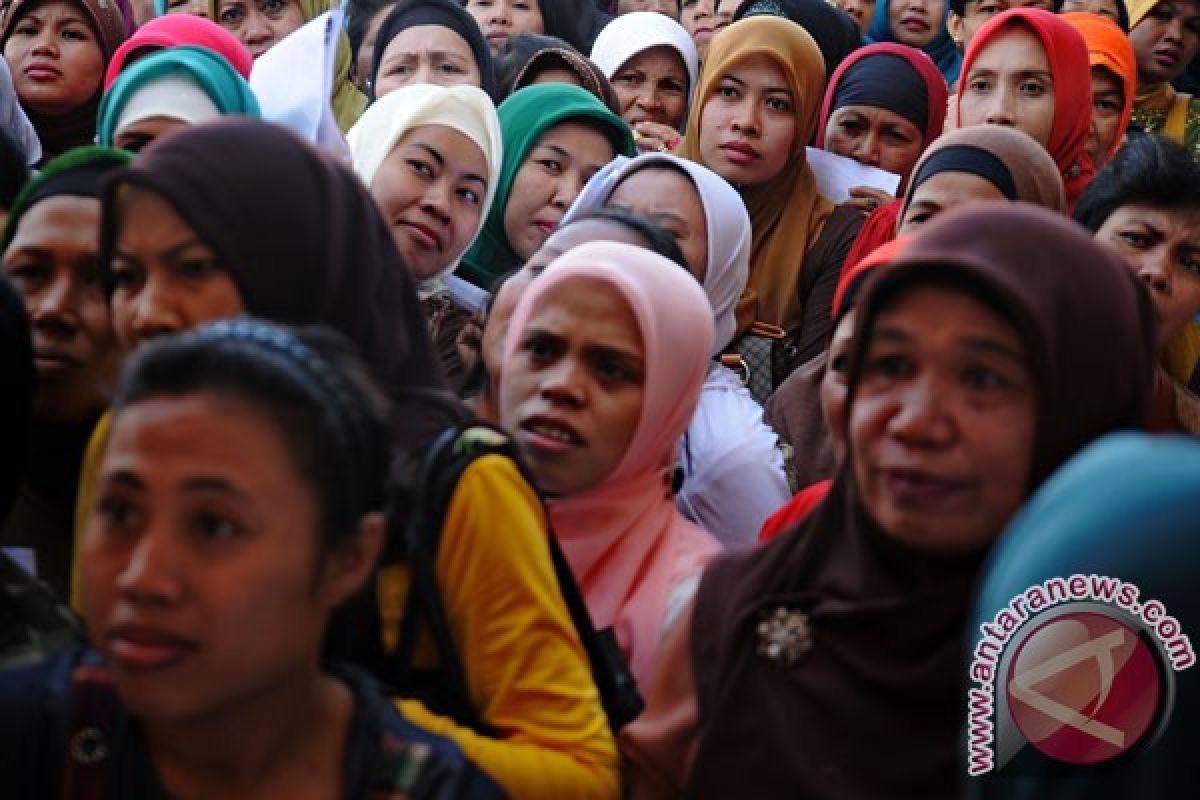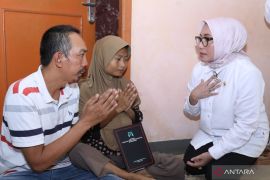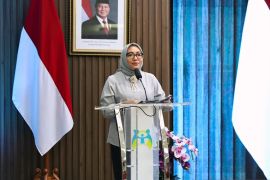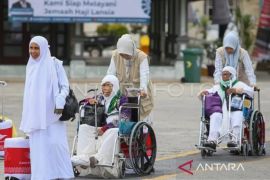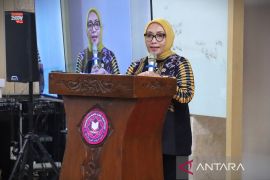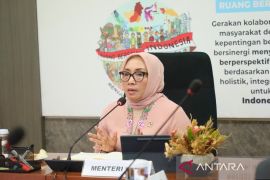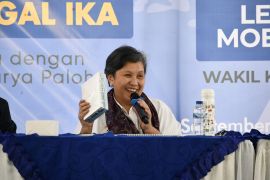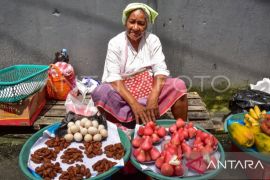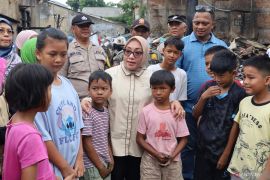Such a condition has forced women who are single and married, young and middle-aged, to make money either as workers in their own countries or as migrant workers, a member of a Muslim community in London, Yumna Umm Nusaybah, said here Saturday.
"This is the price of women, that equals to money they can take home," said Yumna who is now in the Netherlands among female Muslims for a discusion on Islam.
Allowing women to work without guarantee of adequate protection and security of their physical conditions and dignity is a form of exploitation over women who should win the noble position as their privileged role in the family and society, she said, adding that women should be appreciated by stopping all forms of exploitation against them.
According to Dr. Nazreen Nawaz who represents Central Media office of Hizbut Tahrir (an international Islamic political organization), usury-based capitalism that the West applies in the developing countries, has modelled the `debt-fuelled` economic growth.
"As a result, the economy becomes fragile, the mass unemployment keeps growing, and millions of families in developing countries are affected by acute poverty," Nazreen said recently on the international women`s conference held by Hizbut Tahrir in Jakarta.
It is strange enough that the developing countries` governments still stick to the capitalism system, he noted.
In an effort to increase the state income, developing countries' governments maintain privatization on resources which are actually for the interest of the people, and free markets without control from the state, which clog the wealth distribution flow to the people.
"Capitalism has claimed many victims including millions of women in Indonesia and other developing countries in Asia who have to leave home and their children to work for a certain amount of money which was not worth with their sacrifices," Yumna said.
Indonesia`s Central Bureau of Statistics (BPS) recorded the poverty level in Indonesia in 2011 amounted to 12.49 percent, or representing 30,018,930 people. This figure was down by 13.33 percent or 31,023,400 people from that in 2010. The government hopes that this figure decreases in the range between 10.5 and 11.5 percent in 2012.
But these are just figures which will not narrow the social gap, nor reduce pressure that forces Indonesian women to become migrant workers, factory workers, farm labourers or small-scale traders in conditions akin to slavery as they have to do it in order to make themselves and their families survive.
Exploitation
In Indonesia, 39.8 million women work as laborers and 4.2 million have to go abroad thousands of miles from their homes far from their beloved families to be migrant workers.
"Ninety percent of the women who have to go abroad to make a living are domestic migrant workers who are vulnerable to abuse by employers are not humanely treated by the labor agents, or are used by irresponsible parties who take advantage of them," a representative of Hizbut Tahrir`s Central Media office of Southeast Asia section, Fika M. Komara said.
She said violations against domestic migrant female workers before arriving in the countries of destination include confiscation of personal documents, sexual harassment and physical abuse, unpaid wages, long working hours (16 to 18 hours per day during a week), no private life, dependance on debt, fraud by recruitment agencies, and human trafficking.
"At their work places, they are also treated like modern slaves," Fika said.
They have no freedom to leave their work places, have limited time to rest, should be ready for calls in 24 hours, and do any kinds of jobs. The condition makes them vulnerable to exploitation by employers.
"Such violations occur to almost all domestic migrant female workers from such developing countries as Indonesia, Bangladesh, Pakistan, the Philippines and India," Fika said.
The National Agency for the Placement and Protection of Indonesian Migrant Workers (BNP2TKI) noted that by 2012 the number of Indonesian workers abroad reached to 3,998,592 people.
With this number of migrant workers, the total remittances available at 19 BP3TKI (the Agency of Placement Services and Protection for Indonesian Workers) throughout Indonesia in 2011 amounted to Rp66,082,481,882,242.
Until July 2012, the remittances reached to Rp58,257.830,946,580 with a total placement of workers as many as 362,510 people.
"However, is it worth for the government boasting this national income, while the Indonesian workers, of which 90 percent are women, are under threats by their employers, and facing possible humiliation and persecution," Fika said.
Islamic system
"Obviously, that capitalism was the source of the exploitation over women who have to work to get rid of poverty in their families," the media representative of Hizb ut-Tahrir Britain, Shohana Khan who focuses on issues about exploitation of Indonesian and Bangladeshi women said.
The Bangladeshi and Indonesian governments will argue that they have set up certain measures and regulations to try to ensure that women should not leave the country to seek jobs. Such regulations restrict the women from travelling. However, the government should guarantee that the women are free from poverty, she said.
The governments should immediately abandon capitalism and implement a healthy economic system, she added.
She explained this system is the one that prohibits the privatization of natural resources and investment in the developments of infrastructure, agriculture, and industrial technology. Whereas the policy is directed in order that wealth is distributed effectively so it can guarantee the fulfillment of every citizen`s basic needs.
Meanwhile, the mass unemployment problem is solved through a healthy productivity by communities` resources management.
"This will allow men to fulfill their obligations to support their families, while at the same time the state is able to meet the needs of women and orphans who no longer have male relatives who can support them," Fika said.
In this regard, Nazreen said, this is the Islamic system which can only be materialized if Muslim countries return to the leadership of the Caliphate.
"For a dozen centuries, Islamic Caliphate has proved successful in establishing a great human civilization as it provides a practical solution for various problems, including freeing women from exploitation," Nazreen said.
(KR-LWA/B005/O001)
Reporter: Libertina Widyamurti Ambari
Editor: Jafar M Sidik
Copyright © ANTARA 2012
